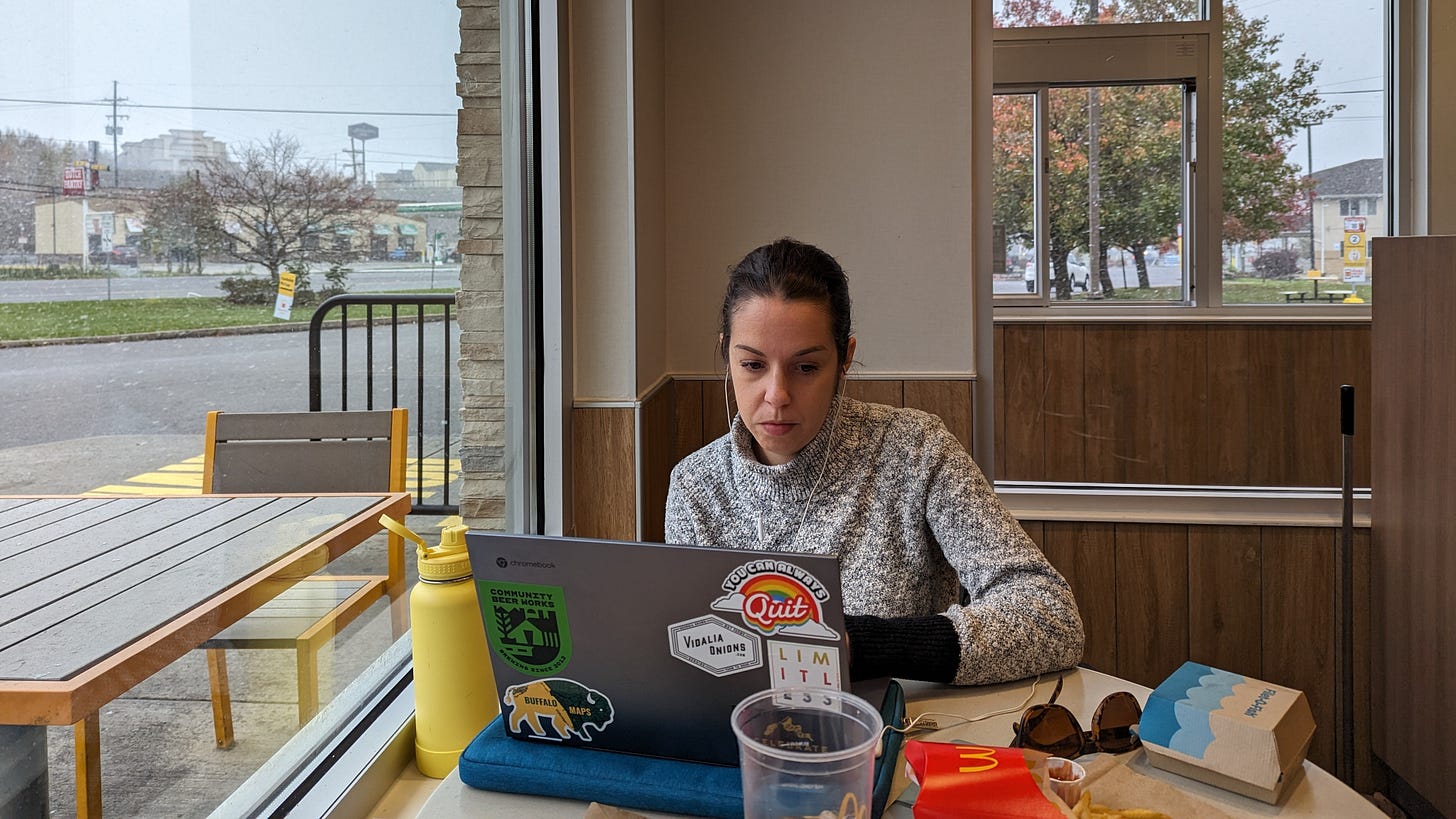
Hi friends — I’m sending just the top links this week, as I’m on the road visiting family and friends near D.C. That means much of this brief newsletter came together in the passenger seat of our 2013 Toyota Camry. (Jason: “you are absolutely going to get car sick” / me: “but the people need weekend reading!!”)
If you read anything this weekend
“The People Who Ruined the Internet,” by Amanda Chicago Lewis for The Verge. This headline could credibly apply to many ruinous individuals and assorted groups thereof: social media executives, crypto influencers … Boomers, in general. But this particular article blames the dark art of search engine optimization for the decline of today’s internet, and even some practitioners seem willing to cop to their role in that.
“TikTok’s Finest Lobsterman,” by Steven Kurutz for The New York Times. Why are so many viewers so deeply intrigued by the work of “blue collar influencers”? Is it a kid-like fascination with unusual jobs? A thirst for authenticity in our “For You” pages? Whatever the precise reason/reasons, guys like lobster fisherman Jacob Knowles have amassed millions of followers — and sponsorship deals with the likes of BetterHelp, which is kind of hilarious.
“Content Creators Surge Past Legacy Media as News Hits a Tipping Point,” by Taylor Lorenz for The Washington Post. “There are no reasonable grounds for expecting that those born in the 2000s” will ever consume or trust traditional media en masse — a significant void into which “news influencers” have attempted to fling themselves. Some of these “content creators” are actual journalists. Most just launder news from outlets they’ve purportedly supplanted. There’s an opening here for a small-town reporter who can ~news influence~ with a blue-collar aesthetic…
“The UN Hired an AI Company to Untangle the Israeli-Palestinian Crisis,” by David Gilbert for Wired. This is by far the most fascinating and bewildering application I’ve ever heard for “digital twins” — virtual representations of real people or things, often made for simulation or modelling purposes. A company called CulturePulse is currently building an individualized “twin” for every resident of Israel, Gaza and the West Bank. They say (and I’m getting strong, suspicious Hari Seldon vibes here) that it will predict responses to broader economic and political change.
“What Happens When Ads Generate Themselves?” by John Herrman for New York. “These photos somehow offer less information than the customary floating-in-white-space Amazon product shot. They don’t add context. They subtract it. This toaster has been banished to four different locations in the uncanny valley, none of which are anywhere near an electrical outlet.”
👉 ICYMI: The most-clicked link from last week’s newsletter was this piece on TikTok’s “lip gloss tactic.”
Classified ads
Everyone was awkward in high school. At the "Roast of Your Teenage Self" we celebrate that by inviting some of NYC's funniest comedians to skewer the one person everybody loves to hate: themselves as a teen. Back for the first time since the pandemic, this month's show will feature Kate Sisk, Moss Perricone, Angelo Colina, Dylan Adler, and host Alise Morales.
Want to share your newsletter, podcast, job post or product with us? Click here to book a classified ad in the next edition.
That’s it for this week! Much more in the next one. Warmest virtual regards.
— Caitlin


